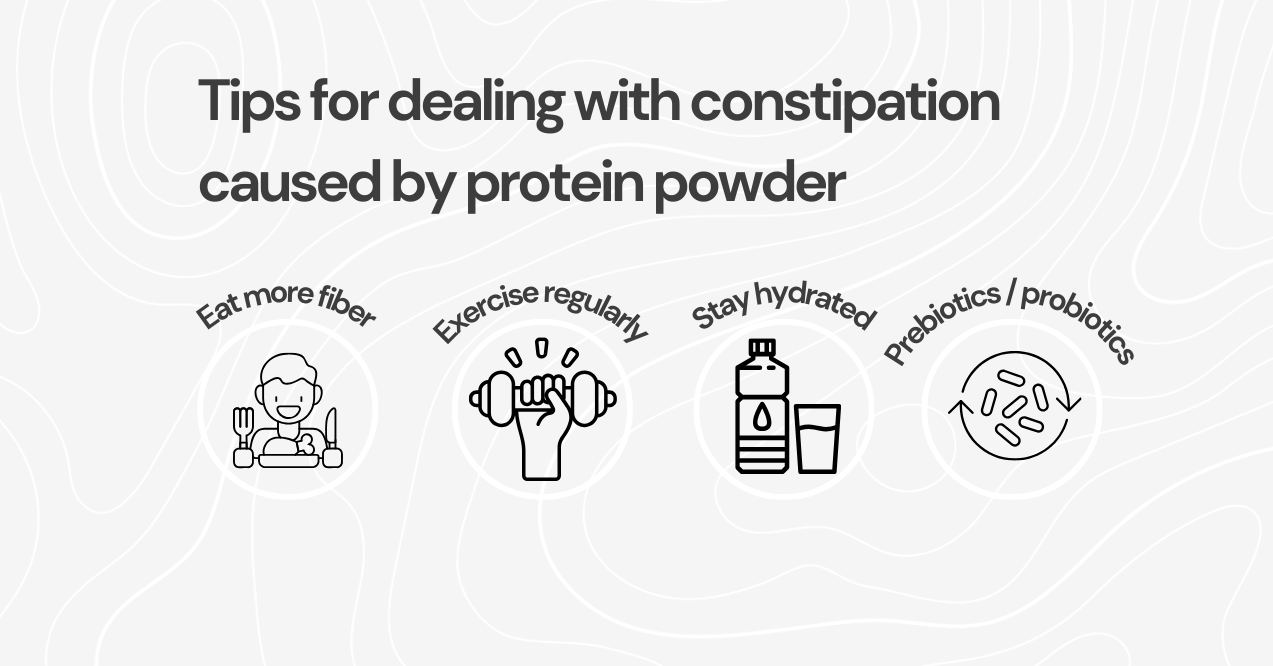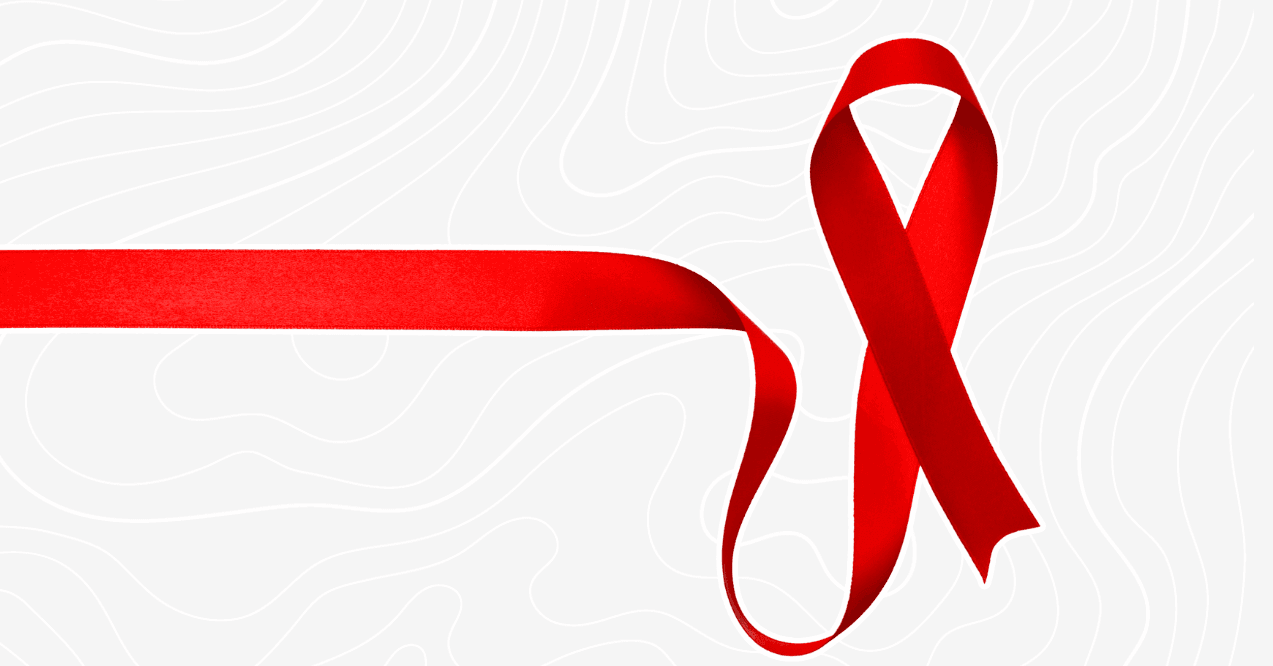Does Protein Powder Cause Constipation? Exploring the Possible Side Effects
Does protein powder make you constipated? While it’s generally well tolerated, some people experience digestive discomfort depending on the type of protein, added ingredients, and overall diet balance.
One overlooked factor is protein digestion time. If you’ve ever wondered how long does protein stay in your system, the answer depends on the source. Whey protein is fast-digesting, typically absorbed within a few hours, while casein and collagen take much longer, potentially slowing down digestion if not balanced with fiber and hydration.
This issue can be frustrating, especially for those using protein powder regularly to support fitness goals. Understanding why protein powder may cause constipation and learning simple strategies to support digestion can help you enjoy its benefits without unwanted side effects.
Key findings:

Does protein powder cause constipation?
Does protein powder make you constipated? For most people, it doesn’t, but some might experience digestive discomfort. Protein powder isn’t usually a direct cause of constipation, but certain factors can contribute:
- Type of Protein
- Low Fiber Content
- Added Ingredients
- Lactose Content
Additionally, for those wondering, can you drink protein shakes without working out? Yes, you can. Protein shakes can help meet your daily protein needs. However, if you’re experiencing constipation, consider choosing a different type of protein powder or checking the ingredients to find a better fit for your digestive system.
Why does protein may cause constipation?
- Type of Protein – Some proteins, like casein, digest slowly, which can lead to a feeling of heaviness or digestive sluggishness. Whey protein can also cause issues for those who are sensitive to lactose, leading to discomfort and constipation in some cases.
- Low Fiber Content – Most protein powders don’t contain much fiber. Fiber is essential for healthy digestion because it adds bulk to stool, helping it move through the intestines. Without enough fiber, digestion slows down, which can cause constipation.
- High Protein Intake – Eating a lot of protein, especially from supplements, can throw off the balance of other nutrients that support digestion. Pairing protein with other macronutrients, like carbs and fats, helps keep digestion smooth.
- Artificial Sweeteners – Ingredients like sucralose or sugar alcohols, often added to protein powders, may cause bloating, gas, or constipation in some people.
Tips for dealing with constipation caused by protein powder

If protein powder is causing constipation, don’t worry – there are simple ways to support your digestion and stay comfortable. Try these strategies to keep things moving smoothly:
1. Eat More Fiber
Adding more fiber to your diet can promote regular bowel movements and help prevent constipation. Fiber adds bulk to stool, making it easier to pass. Good sources of fiber include fruits, vegetables, whole grains, and legumes. If you’re using protein powder, pairing it with fiber-rich foods or blending it into smoothies with berries or spinach can make a big difference. You can also try baking with protein powder for almond flour to boost both your fiber and protein intake in a delicious, gut-friendly way.
2. Exercise Regularly
Regular physical activity helps stimulate digestion and prevent constipation. When you move, your intestines also “move,” which aids the digestive process. Even a daily walk, some light stretching, or gentle yoga can help support digestion and keep your system functioning well.
3. Stay Hydrated
Staying well-hydrated is key when consuming protein powder. Protein requires water for digestion, so drinking enough water throughout the day can help prevent constipation. Aim to drink water with each protein shake and keep sipping throughout the day. Herbal teas and water-rich fruits and vegetables can also contribute to hydration.
4. Add Prebiotics and Probiotics
Prebiotics and probiotics can support gut health, making digestion smoother. Probiotics introduce healthy bacteria to the gut, while prebiotics feed that bacteria. Together, they help maintain balance in your digestive system. Look for probiotic-rich foods like yogurt, kefir, and fermented vegetables, or consider a supplement if you need extra support.
Additionally, if you’re seeking a protein powder that’s easy on your digestion, consider Trumeta Bone Broth Protein. Made from real beef bones and packed with over 30 amino acids, vitamins, and minerals, it provides high-quality protein without fillers or artificial ingredients.

This natural, nutrient-rich option is dehydrated to maintain its nutritional benefits, offering you a protein source that’s gentle on the stomach. Plus, with its delicious cocoa flavor, Trumeta Bone Broth Protein makes boosting your protein intake easy and enjoyable.
How much protein do you need each day?
The amount of protein you need daily depends on factors like age, activity level, and fitness goals. For most adults, a general guideline is about 0.8 grams of protein per kilogram of body weight. If you’re active or looking to build muscle, you might need more – around 1.2 to 2.0 grams per kilogram.
- Sedentary Adults – Approximately 0.8 grams per kilogram of body weight.
- Moderately Active Individuals – About 1.0 to 1.2 grams per kilogram.
- Athletes and Bodybuilders – Between 1.2 and 2.0 grams per kilogram.
Including a variety of protein sources in your diet helps meet these needs. Combining collagen and bone broth together can be a natural way to boost your protein intake. Bone broth supplements not only provides protein but is also rich in collagen, which supports joint and skin health. Wondering how much collagen is in bone broth? On average, a cup of bone broth contains up to 10 grams of protein, much of which is collagen.
Conclusion
So, does protein powder make you constipated? For some, it can, especially if certain types of protein or added ingredients disrupt digestion. While constipation isn’t a typical result of protein powder, factors like low fiber, dehydration, or specific protein types may contribute.
By adjusting your diet with fiber-rich foods, staying hydrated, and adding prebiotics or probiotics, you can help support digestion. Remember, finding the right balance and choosing a protein powder that suits your needs is key. With these simple adjustments, you can enjoy the benefits of protein without the discomfort.
Yes, a high-protein diet can lead to constipation, especially if fiber intake is low. Protein requires more water for digestion, so insufficient hydration or fiber may slow digestion, potentially causing constipation.
Yes, diarrhea and protein shakes can be linked for some individuals. This often happens if the protein shake contains lactose, artificial sweeteners, or high sugar content, which may irritate the digestive system and lead to diarrhea.
Protein powder can cause bloating, particularly if it contains lactose or additives. Some protein types, like casein, digest slowly, which may lead to a feeling of fullness and bloating in certain individuals.
Constipation may cause temporary weight gain due to retained stool, but it doesn’t lead to actual body fat gain. Regular bowel movements can help maintain a comfortable weight, but true weight changes depend on diet and activity.
Advertisement. This site offers health, wellness, fitness and nutritional information and is designed for educational purposes only. You should not rely on this information as a substitute for, nor does it replace, professional medical advice, diagnosis, or treatment. If you have any concerns or questions about your health, you should always consult with a physician or other health-care professional. Do not disregard, avoid or delay obtaining medical or health related advice from your health-care professional because of something you may have read on this site. The use of any information provided on this site is solely at your own risk.







